December News Summary
New disease publication; Student gives first presentation at national meeting; Bean and beet diagnostic day a big success; students and faculty outreach

- Ph.D. student Alexandra Hernandez presented her first talk as a grad student at the national American Phytopathological Society meeting August 2022 in Pittsburgh PA – “Use of a foliar heat treatment to improve Cercospora leaf spot management in sugarbeet” to about 200 attendees. This was our students’ first in-person conference due to pandemic travel restrictions and recent virtual formats. Also shown in the photo are fellow grad students Emma Schlachter and Carly Hendershot who later presented posters highlighting their research.
- NEW DISEASE PUBLICATION Potato (Solanum tuberosum L.), an annual crop in the Solanaceae family, is planted in March, and harvested three months later. Potatoes have high nutritional value and can be used as a staple food and in other products such as potato chips, and are economically important in Michigan. However, their value is somewhat dependent on their long-storage ability. Numerous diseases are known to seriously affect tubers after harvesting, and another has been identified in Michigan. In an accepted report available in First Look format of the journal Plant Disease – published online October 27, 2022 – the MSU PSM potato disease diagnostic team describes the “First report of Geotrichum candidum causing rubbery rot of potato (Solanum tuberosum) in Michigan” https://apsjournals.apsnet.org/doi/10.1094/PDIS-04-22-0916-PDN
- Assistant Professor Jaime Willbur together with Scott Bales, Daniel Bublitz, and Tom Wenzel coordinated the Bean and Beet Diagnostic Day on August 23, 2022 at the Saginaw Valley Research and Extension. The last MSU diagnostic events for these industries were held more than 10 years ago and turnout and attendee participation were excellent. Participating MSU specialists included: Martin Chilvers, Chris Difonzo, Linda Hanson, Marisol Quintanilla, Christy Sprague, Kurt Steinke; MSU Plant & Pest Diagnostics representatives – Erin
Hill and Angela Tenney; participating industry representatives: Corey Guza and Dennis Bischer (Michigan Sugar Company); funded by Project GREEEN Extension award; 150 attendees representing 23 Michigan counties.
Dr Margaret Fleming is one of 12 faculty selected by the National Science Foundation to participate in the STEM Ambassador Program. "My first focal group is underprivileged third graders in Ottowa, Canada, who I will meet with virtually to discuss plants, seeds, and experimental design," says Flemming, who connected with this classroom through Skype a Scientist. "There are many ways to participate in Skype a Scientist - the easiest (and what I do) is to put your name on the list of scientists who are willing to be matched with classrooms. Each fall, they send out a survey to learn how many and what types of classrooms you are willing to speak with, and then match you with teachers. You and the teacher then work out the details.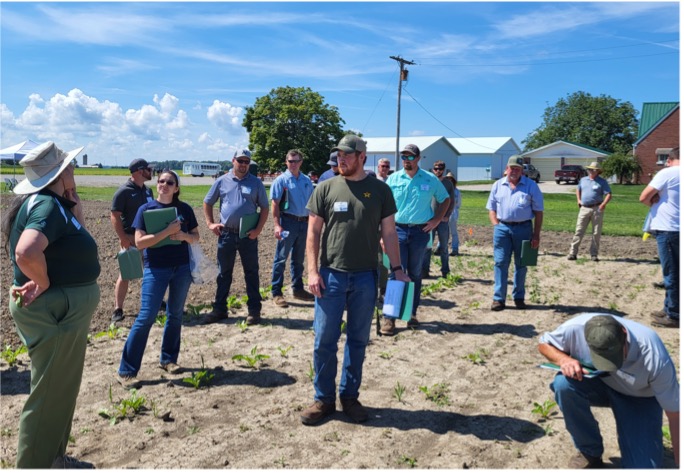
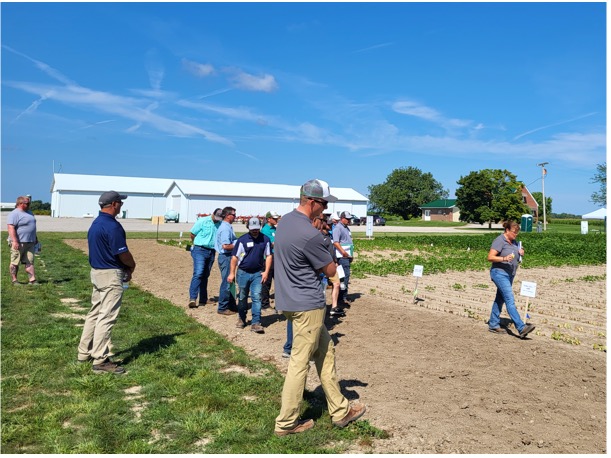
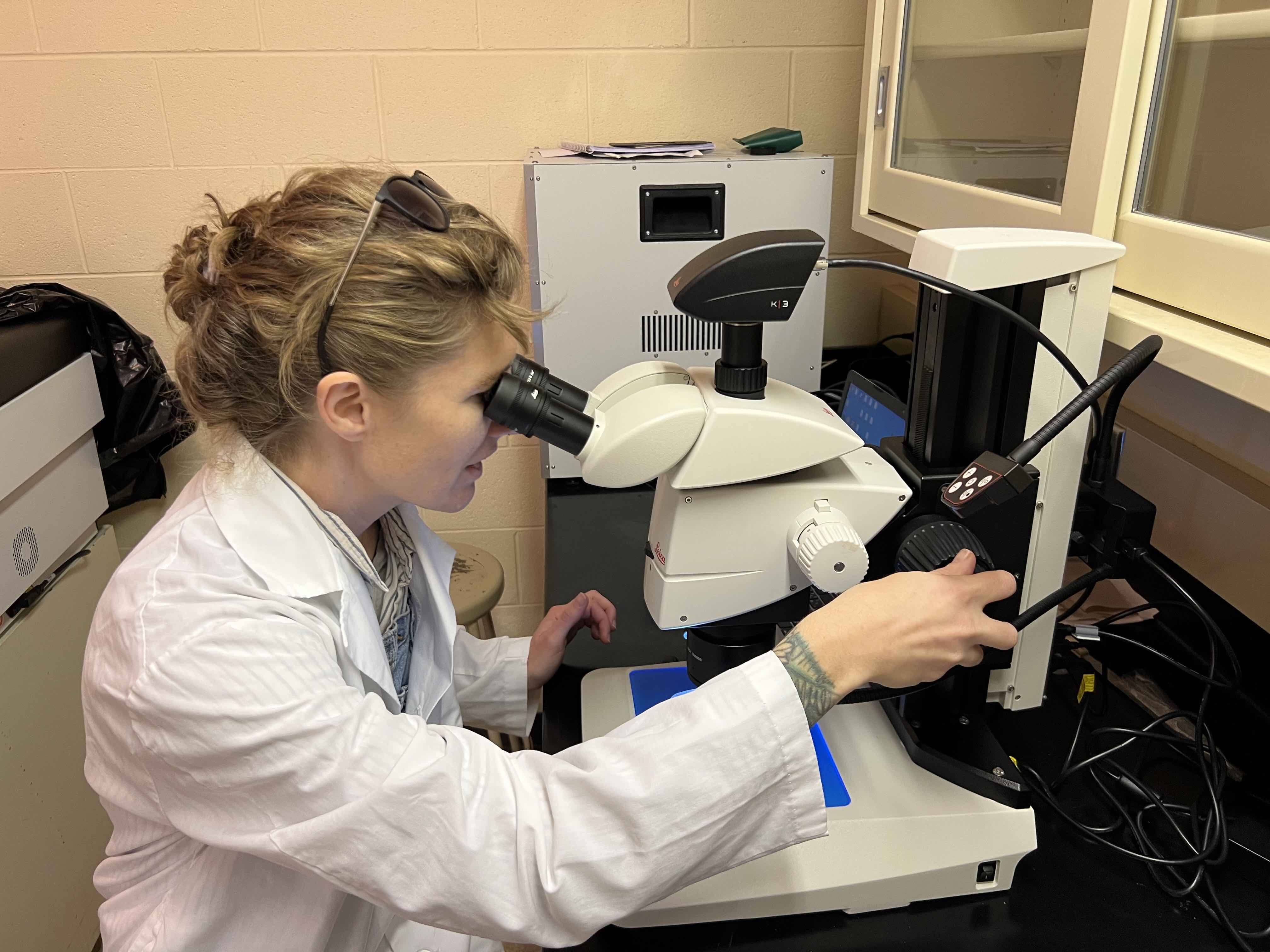
Dr Eunice Foster is director of MSU's STEM-FEE program, which brings young scholars together with Lansing high school students to explore hands-on science activities in their own classrooms. Recently, Tvisha Martin (Grad Student, Dr. Christine Sprunger lab) prepared a project based on her research to the students at Sexton High School for a bit of fun exploring how nematodes can indicate soil health in agriculture systems.
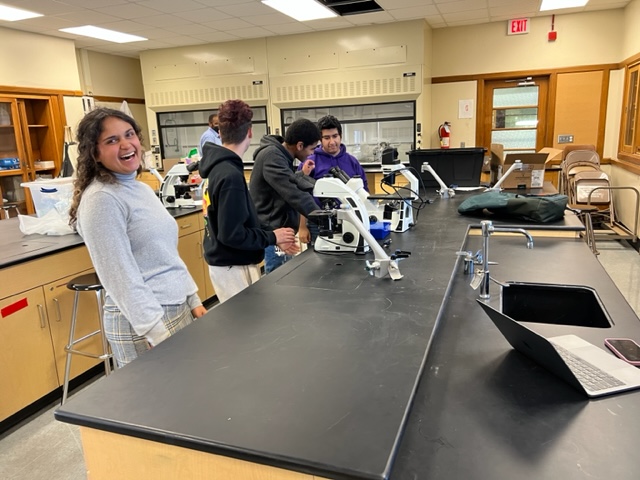 |
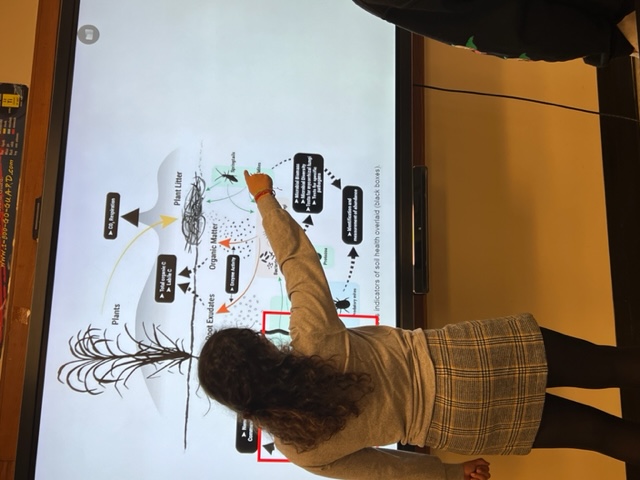 |
|
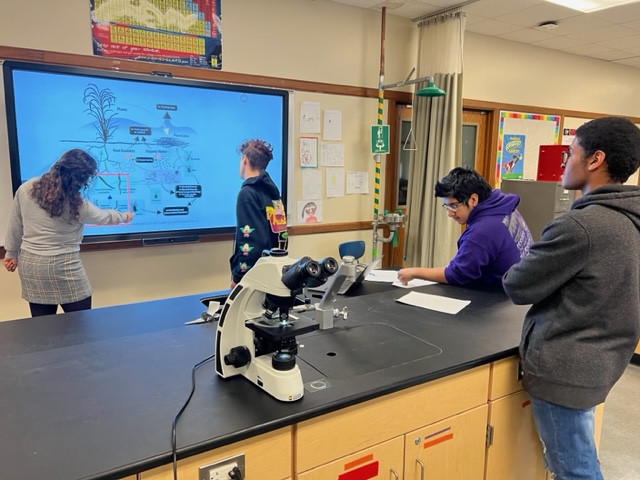 |
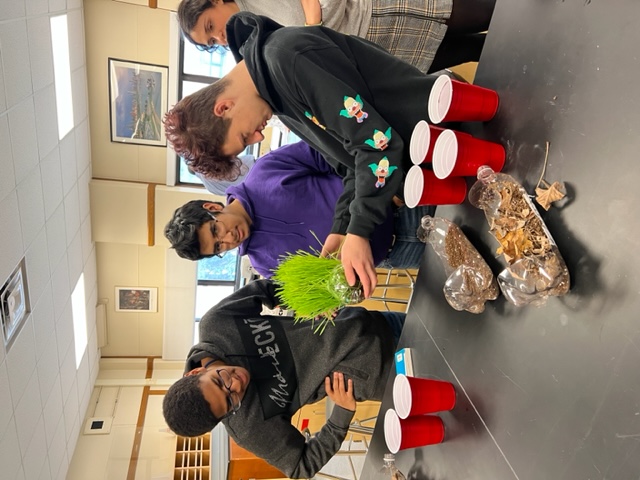 |
|



 Print
Print Email
Email



